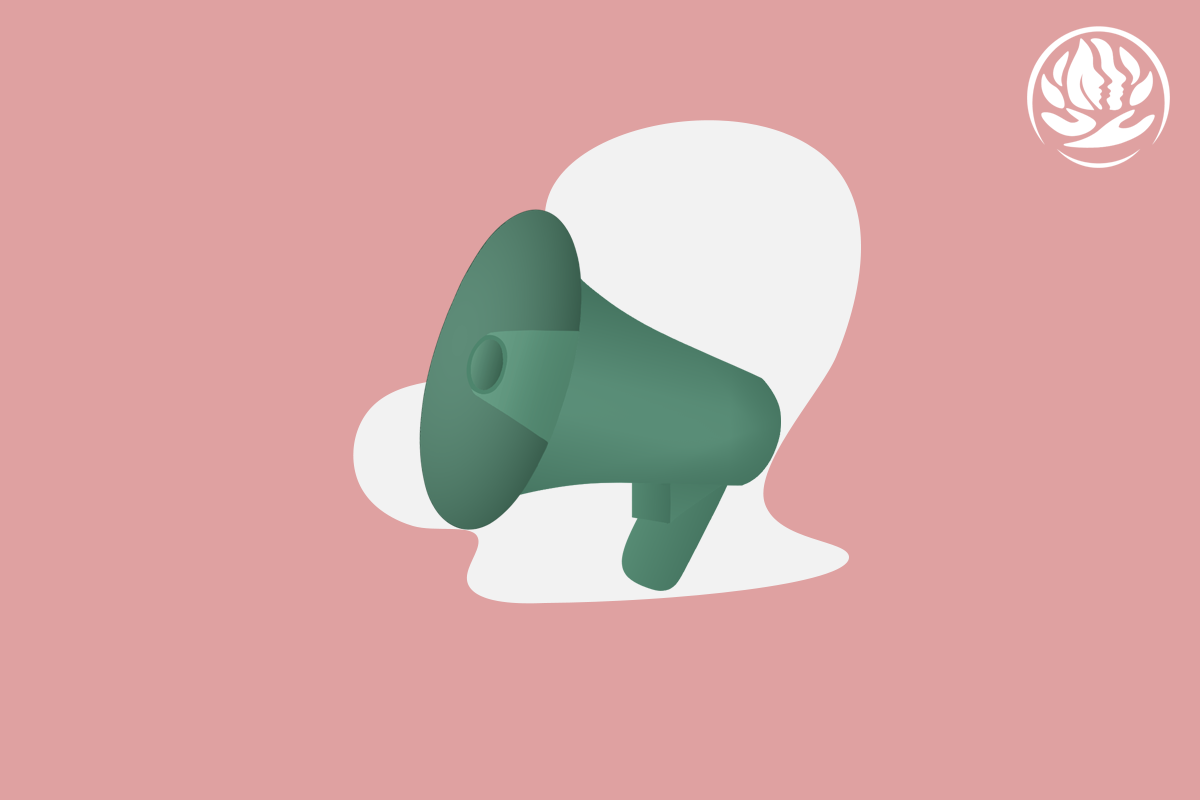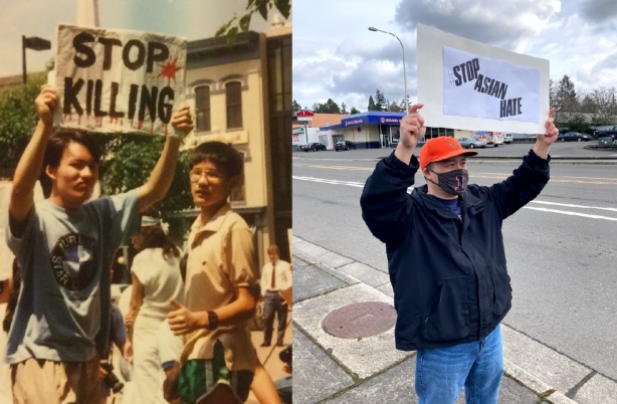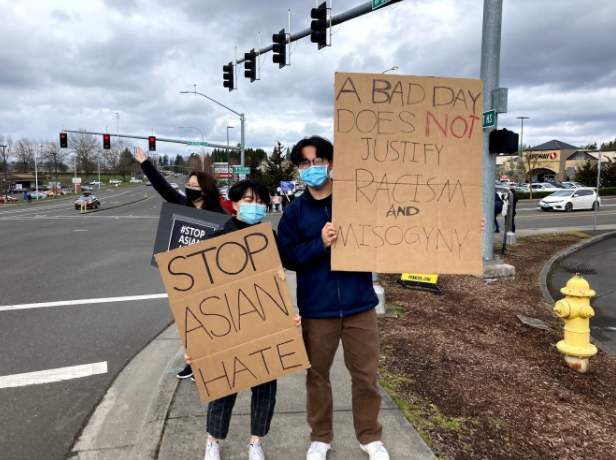Every Voice Counts
JDT

I’m grateful to have the opportunity to help as a volunteer for Project Lotus, and one of the areas I’ve tried to help with my expertise is with social media - specifically with Twitter. It’s been a slow process building up the following, but we are getting there (shameless plug: please follow @_projectlotus if you haven’t already).
For those of you not familiar with Twitter in the social media spectrum, it can be an incredible source of news but can also be one of the most toxic places on the Internet. This has especially been the case for the past several weeks. Every day while going through the timeline for articles to share with others, I’ve been besieged with tweets on the latest news with the anti-Asian attacks, harassment, discrimination, and racism going on in America. It’s been great to see the increased national exposure on these issues, but it has also been angering to see some of the hatred that inevitably comes in some of the responses.
I know the old adage is to “never read the comments” but it’s hard not to.
The attacks themselves have made me feel sick to the stomach. Elderly Asians have been physically assaulted on the streets, simply because they aren’t able to fight back. Others of all ages, down to children, have been yelled at, spat at, and called racist names. Moreover, the vile responses on social media can be described as outright disgusting. And the recent murders of Asian women in Atlanta are simply horrific. All combined, it has taken a toll on our mental health. I’ve seen how seeing all this news is referred to as secondary trauma and it definitely rings true. I’ve felt all sorts of feelings from grief to anger, all building up inside ready to burst.
These attacks are occurring because the perpetrators believe they can get away with it, thanks to the Model Minority Myth combined with our own culture. Asian-Americans as a community have traditionally kept quiet about transgressions against us. Our culture has taught us that even if we are attacked, it’s better if we just keep our heads down and not say anything, that speaking up will simply make things worse. We are not out to cause any trouble because we just want to fit in. The solution instead has always been to simply work harder and we will earn respect that way. And ultimately that by being quiet, it will simply go away.
There’s some additional context that may contribute to the mentality of silence with the older generation. The Immigration Act of 1965 opened up the doors for many from Asia to come over to the United States and if you think about it, that’s not that long after the Japanese internment camps here in America during World War II. There’s no doubt this first wave of Asian immigrants faced racism after coming over and were likely afraid to say anything as they (rightfully) feared consequences such as getting rounded up as the Japanese-Americans had been. Even if that were not the case, they had worked so hard to get here and didn’t want to possibly get sent back either.
It’s been over forty years now though, you would think that at least some things have changed and Asian-Americans should no longer have to fear these threats. Thankfully we are seeing a shift in our community, especially in the younger generation who has been willing to speak up for those who are hesitant to.
In particular, it’s been refreshing to see prominent Asian-Americans in areas of influence making their voices heard. Actors Daniel Dae Kim, Daniel Wu, and Olivia Munn have spoken up and Asian-American journalists on national networks such as Vicky Nguyen and JuJu Chang have tried hard to bring attention to the issues. Basketball star Jeremy Lin has chimed in with his strong feelings and experiences with racism. Dr. Jenny Wang of @asiansformentalhealth on Instagram has used her platform to advocate for and take care of our collective mental health as a community in these tough times. Asian-Americans in Washington D.C. such as Grace Meng have also strongly advocated for change.
As impressive as it has been to see all of these incredible people raise awareness, they cannot be alone.
We may not be famous actors, national journalists, or renowned activists. But we all have our voice in our own spheres of influence. Those could be our place of employment or the school we attend. They could be the faith community we belong to, the athletic team we play for, or the many clubs/activities we are involved with. And of course, we all have our own families and friend groups. In all of those, we can be heard, acknowledged, and accepted.
I have talked about how we should respond when it comes to microaggressions - and we most certainly should speak up when it comes to the current anti-AAPI climate.
Over the last couple of months, I’ve tried to do my part. At my day job, I’ve openly shared my feelings surrounding the current climate and have shared my experiences dealing with microaggressions. For the social media account I run for another organization, I asked for and received the approval to post a #StopAsianHate message. When recently giving an opening statement for my church's service on Zoom, I used the opportunity to talk about what Project Lotus is trying to accomplish and bring awareness to all the anti-AAPI violence going on in our country today. And of course, I’ve had multiple conversations with my family, both my children and my parents, and many friends of all different ethnicities about all the injustices that have been taking place.
The reaction has been very positive. At work, my thoughts and feelings were heard and co-workers asked where they could learn more about what’s going on. With the other organization, they in turn created and posted an additional #StopAsianHate note. At church, I received affirmation from other attendees, stating they stood by and behind me. One other member, who teaches music for a living, even noted how several of her students were Asian-Americans and that Project Lotus’s mission would be useful to their families.
The discussions with others have also been fruitful. For my fellow Asian-Americans, it’s been comforting to hear how they also witness and feel the pain and injustice, and we find solidarity with our thoughts and feelings. Talking to others, some of the response has been that they weren’t aware of the recent attacks - much less the history of oppression in this country - and they have even asked what can be done to help. This reaction isn’t just from White people either. My parents, who tend to focus more on the news coming from their Taiwan homeland, hadn’t heard and were enlightened to what has been going on.
Each time I’ve talked with someone who listens and tries to understand or even empathize, I feel that my feelings are validated. I’ve tried to do the same for others who have reached out to me as well.
Some peaceful rallies and protests have started to take place across the country and memories bring me back to my youth in 1989. After the assault on the Tiananmen Square demonstrations in China, so many of the Chinese people in the area where I grew up banded together to march and peacefully protest in our downtown square. It drew the interest of the local media and brought so much attention to the issues - and I remember how it felt so good to be unified for the cause. So when I found out about a recent Stop Asian Hate rally/protest held near my home, I immediately made plans to attend. Over 100 people came to stand together holding signs on the corner of a major intersection and each time we heard cars drive by and honk their horns, we felt their support.

My brother and I at the Tiananmen Square protest in 1989 (left); Me in 2021 (right)
There’s no reason why we can’t be unified again against injustice today. The bottom line is that it’s simple. Let’s reach out into our own communities and the people we interact with every day. The more we can bring awareness to the issues at hand, the more things can be done about them. The more people who get educated and involved, the more things can move toward change and we can move past being the perpetual foreigner. And by openly talking about things, we find allies and validation, which in turn helps out our own mental health as well as continue to process our own feelings of grief, sadness, and anger.
Contrary to what the Model Minority Myth says about Asian-Americans, we are not invisible and will no longer be quiet. We all have a voice we can share - let’s all make it count.

Project Lotus team members Helen Chen (left, cardboard sign) and Daniel Gu (right) at the rally
(Please note: by speaking out on stopping AAPI hate let’s not take away or diminish any of the other anti-racism efforts currently ongoing. We all need to join and unify in a chorus against racism of all marginalized communities of any kind.)
